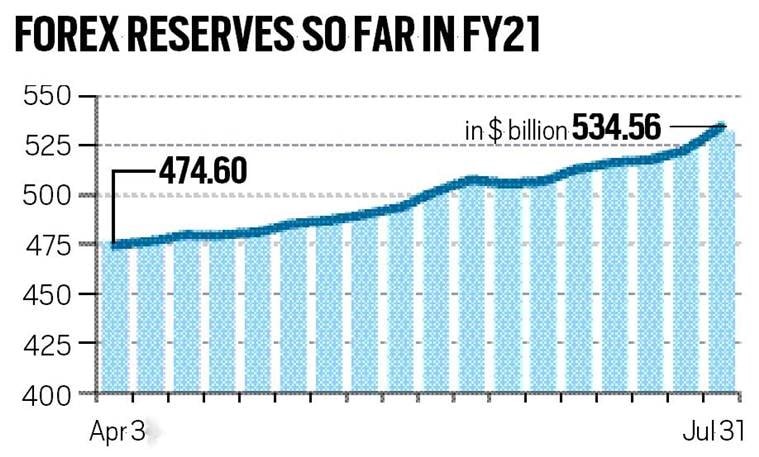In the realm of global finance, foreign exchange reserves play a pivotal role in shaping the economic landscape of nations. Forex reserves are essentially a country’s store of foreign currencies, primarily in US dollars, euros, and other major currencies. These reserves serve as a crucial buffer against external economic shocks and provide stability to the domestic economy.

Image: currentaffairs.adda247.com
Comprehending the functions and mechanisms of forex reserves is vital for understanding how they influence economic stability. This article delves into the intricate relationship between forex reserves and the economy, exploring their impact on key economic indicators.
Forex Reserves: A Bulwark of Economic Strength
As a nation’s repository of foreign currency, forex reserves serve multiple functions that directly impact the economy.
- **External Debt Servicing:** Forex reserves enable a country to fulfill its external debt obligations denominated in foreign currencies, preventing default and maintaining financial credibility.
- **Currency Stabilization:** By buying or selling foreign currencies in the domestic market, central banks can intervene to support the exchange rate of their own currency, preventing sharp fluctuations and safeguarding its value.
- **Imports and Exports:** Forex reserves facilitate international trade by ensuring the availability of foreign currency for import purchases and export transactions, maintaining exchange rate stability and facilitating economic growth.
Impact of Forex Reserves on Economic Indicators
The presence of ample forex reserves has profound implications for various economic indicators:
- Inflation Control: Robust forex reserves provide insulation against inflationary pressures caused by external factors, such as sharp increases in world commodity prices.
- Exchange Rate Stability: Sufficient forex reserves bolster exchange rate stability, reducing exchange rate volatility and fostering a favorable investment climate.
- Economic Growth: Stable exchange rates and reduced inflation supported by ample forex reserves promote economic expansion by creating a conducive environment for businesses and investment.
Managing Forex Reserves
Central banks and governments play a critical role in managing forex reserves effectively. Sound strategies for reserve management include:
- Diversification: Diversifying forex reserves across various currencies minimizes exposure to risks associated with specific currencies and economic conditions.
- Transparency: Transparent reporting of forex reserves instills confidence in the economy and facilitates data-driven decision-making.
- Prudent Spending: Forex reserves should be allocated prudently, ensuring adequate liquidity while balancing the need for economic stability and growth.
:max_bytes(150000):strip_icc()/top-economic-factors-depreciate-us.asp_V3-37d0c5edbbf2461ba23de5167578d140.png)
Image: www.investopedia.com
Conclusion
Understanding the role of forex reserves in the economy is fundamental to comprehending fiscal stability and economic growth. Ample forex reserves provide a safety net against external shocks, stabilize exchange rates, and foster economic prosperity. Effective reserve management strategies enhance the impact of forex reserves on economic indicators and promote a conducive investment climate. By maintaining adequate forex reserves, governments and central banks contribute to sustainable economic growth and resilience in the face of global economic challenges.
How Forex Reserve Effect Economy
Are you curious about the topic you are reading?
If you have any further questions or would like to explore the topic further, feel free to leave a comment below. Your feedback and inquiries are highly appreciated as they help refine and improve future content.






